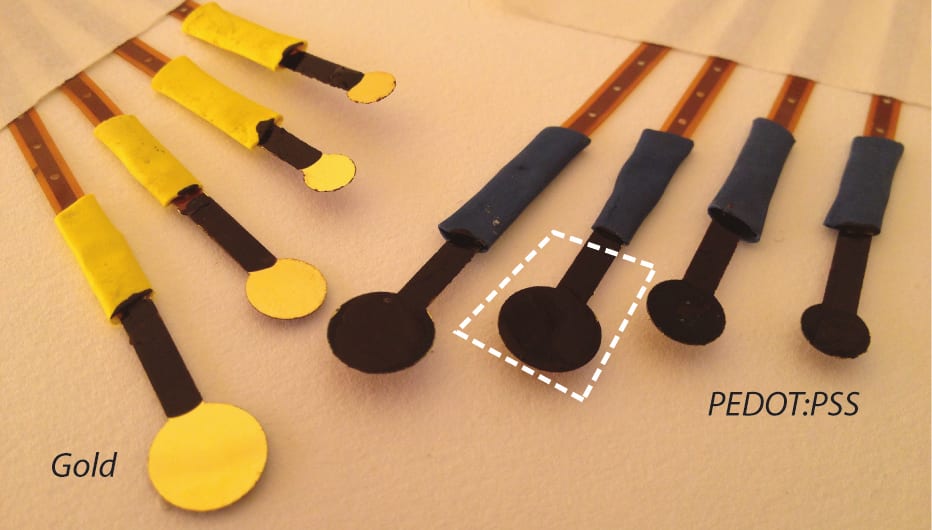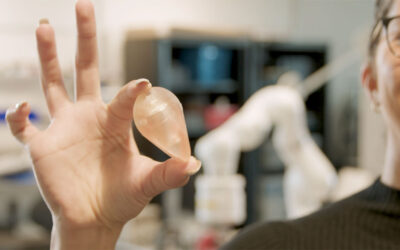 Electroencephalography (EEG), which involves measuring the electrical activity along the scalp, is one of the most frequently used techniques for understanding how the brain works and for the diagnosis of neurological diseases such as epilepsy and Alzheimer’s.
Electroencephalography (EEG), which involves measuring the electrical activity along the scalp, is one of the most frequently used techniques for understanding how the brain works and for the diagnosis of neurological diseases such as epilepsy and Alzheimer’s.
One important limitation of EEG arises from the electrodes being used today and concerns the duration of the measurement. Commercial electrodes require the application of a conducting gel on the skin and this hinders long-term recordings: The gel is water-based and becomes dry after a few hours, which severely degrades the quality of the recordings.
A new solution to this problem, presented in research published in Advanced Healthcare Materials, consists of using conducting polymers as a new type of dry (gel-free) electrode. The French research group responsible used a commercially available conducting polymer and made electrodes on thin plastic substrates that conform well to the skin and provide a high-quality electrical contact. They showed that these electrodes record brain activity with the same fidelity as traditional, gel-assisted electrodes, without the problem of a gel drying out. This result paves the way for long-term EEG recordings.

















